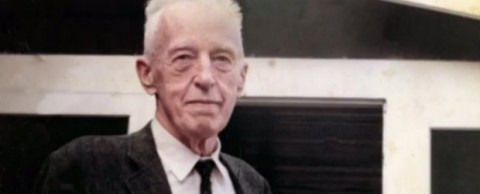That shape am I

Some people start life, William James tells us, “with a bottle or two of champagne inscribed to their credit; whilst others seem to have been born close to the pain-threshold, which the slightest irritants fatally send them over.” James himself was the latter sort, a chronic sufferer who identified with the “sick souls” he describes in The Varieties of Religious Experience. His diary entries speak of a time in the late 1860s when he “about touched bottom.” When he saw a catatonic patient, James’s identification was instant and visceral: “That shape am I, I felt, potentially. Nothing that I possess can defend me against that fate, if the hour for it should strike for me as it struck for him.” The experience led James to conclude in Varieties, “Here is the real core of the religious problem: Help! help! No prophet can claim to bring a final message unless he says things that will have a sound of reality in the ears of victims such as these.”
There are also, as James knew well, some people who start life with a bottle or two of champagne inscribed to their doom. For nearly 80 years, the quasi-religious fellowship Alcoholics Anonymous has been saying things that have a sound of reality—beginning with “that shape am I”—in the ears of thousands of people.
The early history of AA has always fascinated me, so I was eager to see the much heralded new documentary, Bill W. The DVD was released on December 11—the day, 78 years ago, when Bill Wilson, a Wall Street stock analyst in the grip of delirium tremens, checked himself into New York’s Towns Hospital for the fourth time. Towns Hospital was the state-of-the-art detox facility at that time, an expensive sanitarium where addicts were treated with belladonna, cathartics and sedation. It was here that Wilson experienced the mystical “hot flash” from which he emerged transformed, never to drink again.




